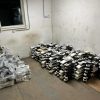IoT Analytics published the Q1/2023 update of their “Global Cellular IoT Module and Chipset Market Tracker & Forecast” – an interactive dashboard and structured market tracker that includes quarterly data on worldwide cellular IoT modules and chipsets from 2018 to Q1 2023, and forecast data from Q2 2023 to 2027.
KEY QUOTES:
Satyajit Sinha, Principal Analyst at IoT Analytics, comments:
“The cellular IoT module market experienced a decline in Q1 2023, due to cautious end-user spending, device makers reducing inventory, and the ongoing semiconductor chip shortage. The slow recovery of the Chinese market and global uncertainties have significantly impacted the market. However, this Q1 market weakness is seen as a bump in the road, with more than 6 billion cellular IoT connections expected by 2027, driven by various sectors and the emergence of 5G technologies.”
KEY INSIGHTS:
In Q1 2023, global cellular IoT module revenue declined 6% YoY; shipments declined 16%.
The key reasons for the decline are: 1. Cautious end-user spending; 2. Inventory reductions; and 3. Chip supply issues.
The top five cellular IoT module companies—Quectel, Fibocom, Telit Cinterion, Sierra Wireless, and LG Innotek—currently account for 66% of the global market.
The Q1 market weakness is seen as a bump in the road, with six billion cellular IoT connections expected by 2027, driven by various sectors and the emergence of 5G technologies.
Global cellular IoT module market declined 6% in Q1 2023 in a weakening demand environment
The Cellular IoT Module Market: Overview
This month, IoT Analytics updated the in-depth Global Cellular IoT Module and Chipset Market Tracker & Forecast, which provides a quarterly look at the revenues and shipments of the companies providing IoT modules and chipsets for cellular IoT deployments.
According to the latest data, the market declined 6% in Q1 2023 on a revenue basis and 16% on a shipment basis (year-on-year). It is important to note that the cellular IoT module market only accounts for roughly 3% of the global IoT enterprise market, so the impact this segment has on the total IoT market is limited. Yet, it is an indication that the general IoT market weakened in Q1 2023. Earlier this year, we forecasted IoT enterprise spending to grow 19% in 2023.
The decline in the cellular IoT module market in Q1 can be attributed to three main factors:
1. There has been cautious end-user spending on the back of economic uncertainties.
Spending for IoT connectivity modules has slowed on the back of budget constraints in a globally uncertain economic environment characterized by high inflation, trade tensions, political instability, and post-pandemic ripple effects in China. Our data show that the retail industry and the Eastern Europe regions are the biggest reasons for the Q1 decline.
“The primary reasons for this decline were the slow recovery of the Chinese market and uncertainties in the global market.” – – Quectel, Q1 2023 financial results
2. Device makers are reducing their inventories.
In response to the economic uncertainties and fluctuating market conditions, device makers that build IoT modules into their products have focused on reducing costs and managing inventory more efficiently. As these companies deploy a lower-inventory strategy to avoid overstocking and minimize costly excess inventory, orders are getting delayed and order quantities get reduced. This has decreased demand for cellular IoT modules.
“Some of our customers pushed out orders to later this year due to their inventory stock levels.” – A cellular IoT module company, Q1 2023
3. A few companies are still facing a shortage of semiconductor chips.
Although lead times for most standard semiconductors have improved steadily since the peak in early 2022, these lead times remain elevated and particularly high for specific chips, particularly in the automotive industry, e.g., vehicle-to-everything (V2X) connectivity modules. LG Innotek, Adient, Cars.com, and Group 1 Automotive are some of the companies that highlighted the chip shortage in their investor reporting in Q1 2023.
“We are experiencing weaker demand and ongoing tightness in the semiconductor chip supply.” – LG Innotek, Q1 2023 financial results
Competitive landscape of the top five cellular IoT module companies
The top five cellular IoT module companies (based on revenue)—Quectel, Fibocom (including Rolling Wireless), Telit Cinterion, Sierra Wireless, and LG Innotek—account for 66% of the global cellular IoT module market in revenue. Recently, #2 Fibocom and #3 Telit Cinterion boosted their positions in the global ranking due to M&A activities in the space.
Here are some of the Q1 highlights from the top 5 vendors:
1. Quectel: As the market leader in shipment and revenue, Quectel experienced an 11% YoY decline in cellular IoT module revenue, a higher YoY decline than in Q4 2022. According to the company, the primary reasons for this decline were the slow recovery of the Chinese market and uncertainties in the global market.
2. Fibocom: Fibocom completed its full acquisition of Rolling Wireless at the beginning of 2023. This acquisition was the key driver for its cellular IoT module revenue growth, which increased by more than 40% YoY in Q1 2023. The acquisition also expanded Fibocom’s portfolio scope in the automotive, FWA, and other mobility industry verticals.
3. Telit Cinterion: Established in early 2023 as a result of the merger between Telit and Thales’s IoT module unit, Telit Cinterion holds third position in cellular IoT module shipment and revenue. Since it is a newly formed entity, there are no benchmarks for comparing its growth or decline.
4. Sierra Wireless: Semtech completed its full acquisition of Sierra Wireless at the beginning of 2023. Sierra Wireless secured fourth position, but its cellular IoT revenue declined by 25% YoY due to lower market demand.
5. LG Innotek: As a pure automotive communication module provider, LG Innotek ranks fifth with a 5% share of global cellular IoT revenue. The company’s cellular IoT module revenue declined by 6% quarter-on-quarter due to weaker demand and ongoing tightness in the semiconductor chip supply.
Outlook for the broader cellular IoT market
According to IoT Analytics’ Global Cellular IoT Connectivity Tracker & Forecast (Q2/2023 Update), the cellular IoT market grew 27% in 2022. The market is expected to continue to grow significantly, reaching more than 6 billion connections by 2027. Various sectors, such as intelligent metering, transport, supply chain management, logistics, and automotive telematics, drive this growth.
Technology innovation also plays a key role for market growth.
The following three key technology trends are visible:
1. 5G coming up : 5G and 5G Recap technologies are expanding their footprint in the market. 5G shipments, for example, are expected to account for 12% of global cellular IoT modules by 2027. Fixed Wireless Access (FWA) and Automotive CV2X are major use cases for 5G technology.
2. New LPWA cellular modules threatening incumbents : New LPWA cellular modules from MCU-based companies such as ST Microelectronics and Renesas compete with traditional cellular module players such as Quectel or Fibocom. MCU players promise better scalability, reduced bill of materials (BoM), and accelerated time-to-market while maintaining full control over the supply chain.
3. The rise of 3GPP-based satellite connectivity : The implementation of 3GPP-based satellite connectivity is becoming increasingly popular, with major chipset manufacturers such as Mediatek, Qualcomm, and Sony Semiconductor showcasing their latest developments in this area. Sony Semiconductor already launched ALT1350, the first cellular IoT LPWA chipset to offer satellite connectivity, which opens up new possibilities for IoT devices to communicate beyond traditional network boundaries. This integration of satellite connectivity into LPWA chipsets is expected to drive further innovation and growth in the IoT market.
The post Global cellular IoT module market declined 6% in Q1 2023 appeared first on IoT Business News.




































